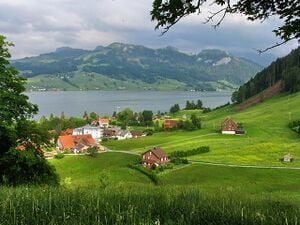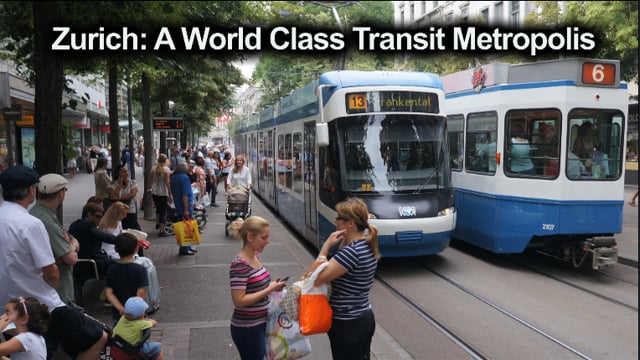Switzerland community action

The aim of this page is to recognise, celebrate and encourage the self-empowerment of community agency networks (CANs) and community groups' activism for climate, environment and many other sustainability topics across Switzerland.
 Human rights violated by Swiss inaction on climate, ECHR rules in landmark case, theguardian.com (Apr 09, 2024)
Human rights violated by Swiss inaction on climate, ECHR rules in landmark case, theguardian.com (Apr 09, 2024)  A Surprising Way to Stop Bullying, reasonstobecheerful.world (Jan 08, 2024)
A Surprising Way to Stop Bullying, reasonstobecheerful.world (Jan 08, 2024)  ‘We have a responsibility’: the older women suing Switzerland to demand climate action, theguardian.com (Dec 27, 2023)
‘We have a responsibility’: the older women suing Switzerland to demand climate action, theguardian.com (Dec 27, 2023)
Networks and sustainability initiatives[edit | edit source]
- meyrin durable on facebook
Climate action[edit | edit source]
The country pledged to cut GHG emissions by 50% by the year 2030 compared to the level of 1990 and works on a plan to reach zero emissions by 2050. W
The 2000-watt society concept, introduced in 1998 by the Swiss Federal Institute of Technology in Zurich (ETH Zurich), aims to reduce the average primary energy use of First World citizens to no more than 2,000 watts (equivalent to 2 kilowatt-hours per hour or 48 kilowatt-hours per day) by 2050, without compromising their standard of living.
In a 2008 referendum, more than three-quarters of Zurich's residents endorsed a proposal to lower the city's energy consumption to 2,000 watts per capita and cut greenhouse gas emissions to one ton per capita annually by 2050, with a clear exclusion of nuclear energy. This occasion marked the first democratic legitimization of the concept.
In 2009, energy consumption averaged 6,000 watts in Western Europe, 12,000 watts in the United States, 1,500 watts in China, and 300 watts in Bangladesh. At that time, Switzerland's average energy consumption stood at approximately 5,000 watts, having last been a 2,000-watt society in the 1960s.
The 2000-watt society initiative is supported by the Swiss Federal Office of Energy (SFOE), the Association of Swiss Architects and Engineers, and other bodies.
Open spaces[edit | edit source]
The Swiss National Park (Romansh: Parc Naziunal Svizzer; German: Schweizerischer Nationalpark; Italian: Parco Nazionale Svizzero; French: Parc National Suisse) is located in the Western Rhaetian Alps, in eastern Switzerland. It lies within the canton of Graubünden, between Zernez, S-chanf, Scuol, and the Fuorn Pass in the Engadin valley on the border with Italy. Founded in 1914, the Swiss National Park is the oldest national park in the alps and in Central Europe.
It is part of the worldwide UNESCO Biosphere Reserve and has IUCN category Ia, which is the highest category, signifying a strict nature reserve. Today, the Swiss National Park has an area of 170.3 km2 and is the largest nature reserve in Switzerland.
Trees, woodland and forest[edit | edit source]
Switzerland contains two terrestrial ecoregions: Western European broadleaf forests and Alps conifer and mixed forests. Switzerland had a 2019 Forest Landscape Integrity Index mean score of 3.53/10, ranking it 150th globally out of 172 countries. W
Community energy[edit | edit source]
Wikipedia: Renewable energy in Switzerland, Switzerland, Carbon dioxide emissions
Community currencies activism[edit | edit source]
Le Léman, une monnaie locale complémentaire émanant de la société civile
Cycling activism[edit | edit source]
Critical Mass bicycle rides in Switzerland - SwitzerlandMobility, Cycling in Switzerland, with interactive maps for bikers and other information about the national biking network
Food activism[edit | edit source]
Bio Suisse, federation of Swiss organic farmers (private-sector organization) - Incroyables Comestibles Meyrin on facebook
Reduce, reuse, repair and recycle[edit | edit source]
ricardo.ch Schweizerisch Version von Ebay - www.swissrecycling.ch - Entsorgung von elektrischen und elektronischen Geräten - Brockenhäusern im Kanton Zürich
Sharing[edit | edit source]
Pumpipumpe, a sharing community
Urban sustainability[edit | edit source]
Happy City Lab, designs and markets participatory and interactive installations that transform daily events
Maps[edit | edit source]
- Map of Switzerland with route planner, map.search.ch
Other resources[edit | edit source]
- Switzerland and the Environment, information from swissworld.org - Switzerland's official information portal
About Switzerland[edit | edit source]
Environmental challenges
Switzerland's ecosystems can be particularly fragile, because the many delicate valleys separated by high mountains often form unique ecologies. The mountainous regions themselves are also vulnerable, with a rich range of plants not found at other altitudes, and experience some pressure from visitors and grazing. The climatic, geological and topographical conditions of the alpine region make for a very fragile ecosystem that is particularly sensitive to climate change. Nevertheless, according to the 2014 Environmental Performance Index, Switzerland ranks first among 132 nations in safeguarding the environment, due to its high scores on environmental public health, its heavy reliance on renewable sources of energy (hydropower and geothermal energy), and its control of greenhouse gas emissions. In 2020 it was ranked third out of 180 countries. W
Biocapacity deficit
Access to biocapacity in Switzerland is far lower than world average. In 2016, Switzerland had 1.0 global hectares of biocapacity per person within its territory, 40 percent less than world average of 1.6 global hectares per person. In contrast, in 2016, they used 4.6 global hectares of biocapacity – their ecological footprint of consumption. This means they used about 4.6 times as much biocapacity as Switzerland contains. The remainder comes from imports and overusing the global commons (such as the atmosphere through greenhouse gas emissions). As a result, Switzerland is running a biocapacity deficit. W
Switzerland, officially the Swiss Confederation, is a landlocked country located in west-central Europe. It is bordered by Italy to the south, France to the west, Germany to the north, and Austria and Liechtenstein to the east. Switzerland is geographically divided among the Swiss Plateau, the Alps and the Jura; the Alps occupy the greater part of the territory, whereas most of the country's nearly 9 million people are concentrated on the plateau, which hosts its largest cities and economic centres, including Zurich, Geneva, and Lausanne.
See also[edit | edit source]
External links
- Geneva Environment Network, network of international organizations
- Swiss Statistics at the Swiss Federal Statistical Office

